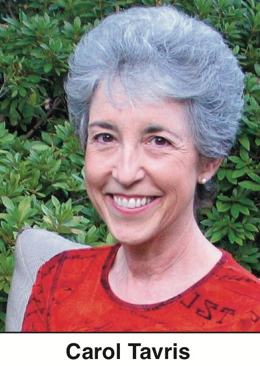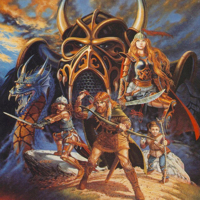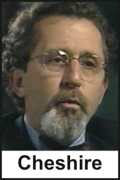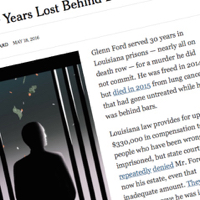Rascals case in brief
In the beginning, in 1989, more than 90 children at the Little Rascals Day Care Center in Edenton, North Carolina, accused a total of 20 adults with 429 instances of sexual abuse over a three-year period. It may have all begun with one parent’s complaint about punishment given her child.
Among the alleged perpetrators: the sheriff and mayor. But prosecutors would charge only Robin Byrum, Darlene Harris, Elizabeth “Betsy” Kelly, Robert “Bob” Kelly, Willard Scott Privott, Shelley Stone and Dawn Wilson – the Edenton 7.
Along with sodomy and beatings, allegations included a baby killed with a handgun, a child being hung upside down from a tree and being set on fire and countless other fantastic incidents involving spaceships, hot air balloons, pirate ships and trained sharks.
By the time prosecutors dropped the last charges in 1997, Little Rascals had become North Carolina’s longest and most costly criminal trial. Prosecutors kept defendants jailed in hopes at least one would turn against their supposed co-conspirators. Remarkably, none did. Another shameful record: Five defendants had to wait longer to face their accusers in court than anyone else in North Carolina history.
Between 1991 and 1997, Ofra Bikel produced three extraordinary episodes on the Little Rascals case for the PBS series “Frontline.” Although “Innocence Lost” did not deter prosecutors, it exposed their tactics and fostered nationwide skepticism and dismay.
With each passing year, the absurdity of the Little Rascals charges has become more obvious. But no admission of error has ever come from prosecutors, police, interviewers or parents. This site is devoted to the issues raised by this case.
On Facebook
Click for earlier Facebook posts archived on this site
Click to go to
Today’s random selection from the Little Rascals Day Care archives….
Click for earlier Facebook posts archived on this site
Click to go to
Today’s random selection from the Little Rascals Day Care archives….
When imaginary crime leads to real punishment
 Aug. 20, 2015
Aug. 20, 2015
“In the mid-1980s, a friend of mine testified on behalf of an elementary-school teacher who had been accused of being a pedophile.
“A child had told his mother that the teacher had taught them about ‘boobies and dicks’ and had drawn a picture on the blackboard that sounded suspiciously to the mother like an image of an ejaculating penis.
“The police had raced to the classroom and confiscated the damning evidence: several copies of ‘Moby-Dick.’ What the teacher had drawn was a whale and its spout.
“Looking back, we can see that the only boobies involved in this case were the adults. But whenever we are in the midst of a moral panic, as we were in the 1980s, we feel that our alarm is reasonable and that punitive solutions are appropriate.
“Dicks? That child knew the word ‘dicks’? Cancel sex ed! Run that teacher out of town!…”
– From “A Very Model Moral Panic” by Carol Tavris in the Wall Street Journal (Aug. 7)
Remember Dungeons & Dragons – and ‘satanic ritual abuse’?
 Sept. 9, 2016
Sept. 9, 2016
“Strange what we worry about when it comes to our children. A great deal of the culture-war politics of the 1980s consisted of theatrical wailing about threats to our children that were either entirely made up or wildly exaggerated: The boys in ‘Stranger Things’ love to play Dungeons & Dragons, and, in a rare oversight, the series does not even touch on the minor cultural panic surrounding that game in places such as small-town Indiana, where D&D’s supernatural elements sparked terrified tales of occult experimentation.
“It’s not for nothing that this came around the same time as the Salem-style mass hysteria over ‘Satanic ritual abuse’ at the nation’s child-care centers, with fanciful worries about Luciferian cults obscuring the more straightforward anxiety associated with abandoning one’s children to child-care facilities. Yesterday’s Satanic cultists and Alar [a controversial apple growth inhibitor] are today’s online predators and brain-scrambling vaccinations….”
– From “Familiar Things: The TV series ‘Stranger Things’ portrays family breakdown yesterday and today” by Kevin D. Williamson in National Review (Aug. 29)
…and clowns?
![]()
Defending Betsy Kelly? Prepare to be stalked
 Sept. 18, 2013
Sept. 18, 2013
“Joseph B. Cheshire V, Betsy Kelly’s attorney, says the believers in town remain so hostile to the heretics who profess any disbelief over the charges that he no longer feels comfortable vacationing at nearby Nags Head. ‘Good,’ says one prominent Little Rascals father. ‘I almost killed myself last summer running that extra distance past his house, just so he’d know that I knew he was there.’ ”
– From “The Demons of Edenton” by Lisa Scheer and Edward Cone in Elle magazine (November 1993) Download article here
“During (the Little Rascals case), Cheshire was the victim of assaults and for a time wore a bullet-proof vest.”
– From “Nationally known criminal defense attorney Joe Cheshire (’73) talks about his colorful career” by John Trump at Wake Forest University School of Law (April 5, 2010)
Better not to be wrongfully convicted in the first place
 May 18, 2016
May 18, 2016
Even where (wrongful imprisonment) compensation laws exist, they can be badly flawed. Most states, like Louisiana, place the burden on people who were wrongly convicted to prove their innocence before any payment is made. Several states offer embarrassingly small payouts…. Others have laws riddled with unreasonable restrictions…. Some refuse to pay anyone who pleaded guilty or who confessed to a crime he or she did not commit, despite evidence that many innocent people do both….”
– From “Paying for Years Lost Behind Bars,” editorial in the New York Times (May 18)
And some states – well, actually, just one – have governors who withhold compensation for nine months while gratuitously reinvestigating a DNA exoneration.
![]()











0 CommentsComment on Facebook